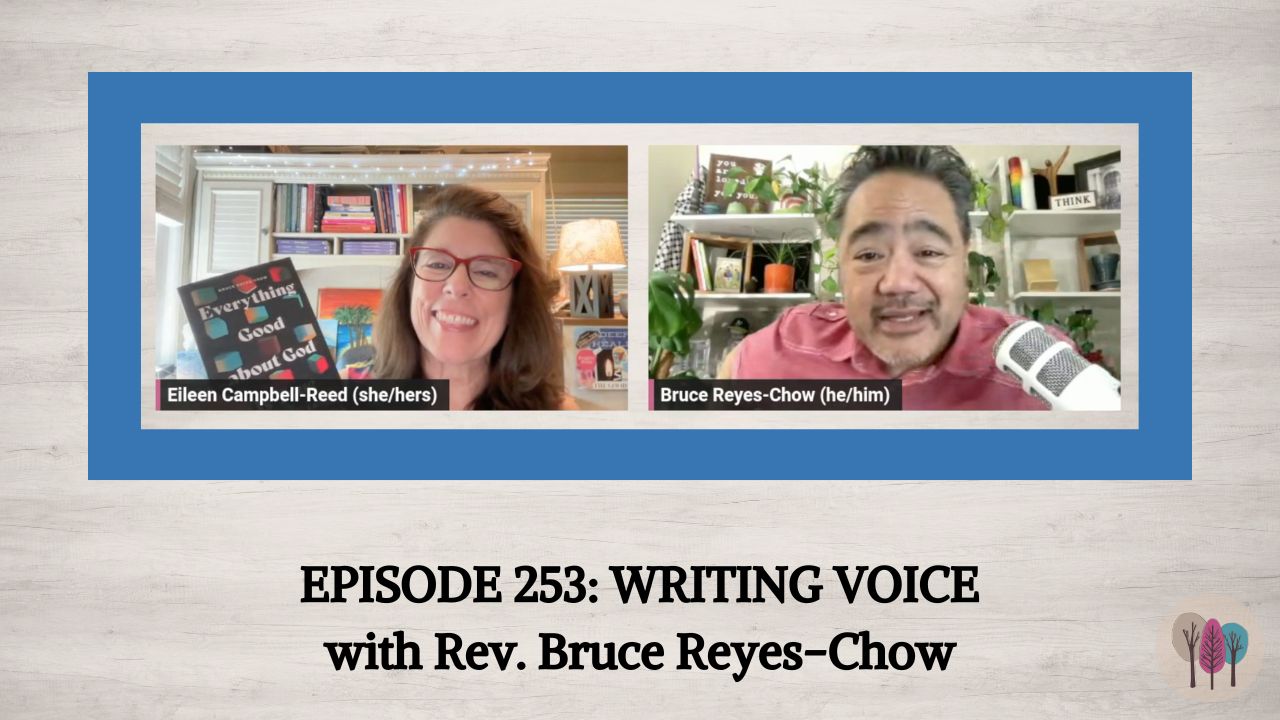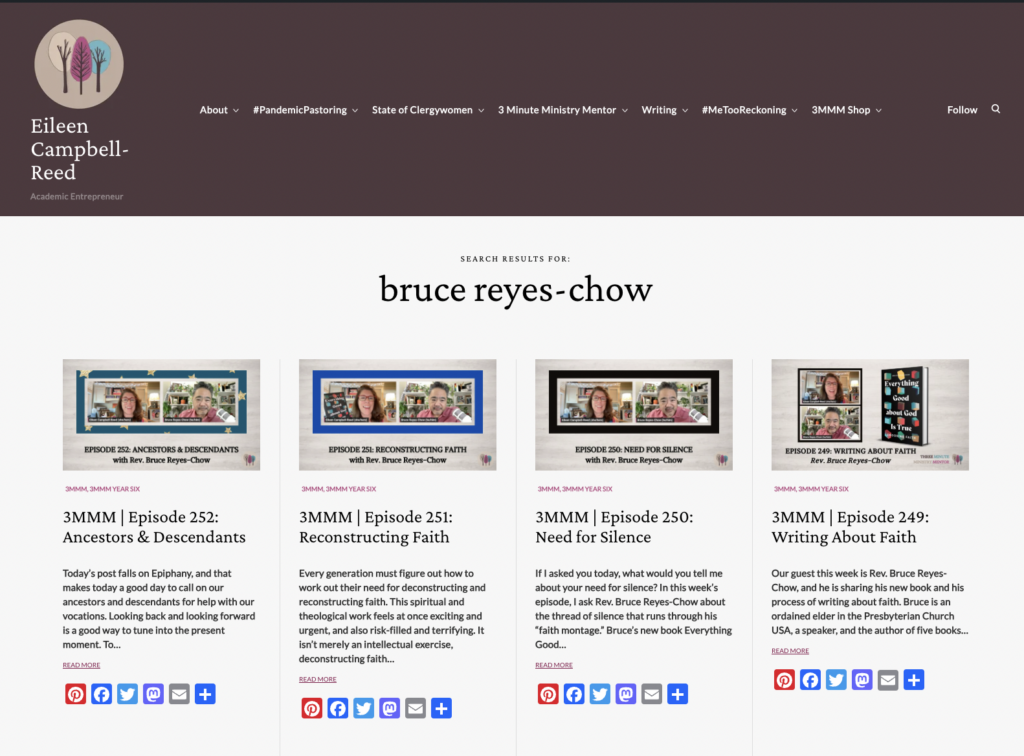How do we cultivate a clear speaking and writing voice? How do we come into sounding like ourselves, speaking with honest and vulnerability on the page or in person? I want to offer four stepping stones to help you move toward a clear and personal voice of your own in writing and in speaking.
My guest this week, Rev. Bruce Reyes-Chow has something to say about his own writing voice. And he tells us about the great experience of having his book editor catch that voice early in their work together on his new book, Everything Good about God is True. In the book he says he nearly gave up on the whole thing. So I asked Bruce how he stuck with it and finished his book.
Here is what he told me.
Watch this week’s 13-min video to learn more about Bruce’s book-writing process and practices. This is the fifth and final installation of my conversation with Bruce. Read the earlier episodes with Bruce and watch our video conversations. What a delight it has been to talk to Bruce!
Then check out the four stepping stones that will move you toward more of your speaking and writing voice.
Four Stepping Stones to Cultivate Your Writing (and Speaking) Voice
1) Take Time
Like every practice, speaking or writing in your personal, unique, and authentic voice cannot be learned all at once. You can take a few shortcuts and perhaps accelerate your learning in a couple ways.
For instance, taking a class might speed up the learning as would taking a job that that requires you to speak or write daily. However, to find your own cadence, rhythms, timber, and truth telling, you you need to keep laying down layers of experience. There is no substitute for trial and effort, hours logged, feedback, and courage to receive that input from other people.
Taking parishioner feedback on a sermon while standing at the sanctuary’s back door? Reading editorial or blind review comments on your writing? These can feel like an assault on your sincere efforts. Such feedback can, of course, be a reflection on the people doing the sharing – their feelings, needs, or wishes. However, this kind of solicited and unsolicited feedback, even when it stings, can include some kernel of truth. If you can consider that feedback non-defensively as information, sifting out the chaff, it can become a valuable source of honing your writing or speaking voice.
2) Imitate and Experiment
In the beginning of a complex and subtle task like finding your own voice, you need to spend some time trying on the voices (giving credit of course) of experts. When we try on the voices of other people, we become clear on what does and does not fit for ourselves. When we experiment, listen, and read other people, we move step by step into our own style and voice.
So you try. Try again. Just keep swimming, as Dory says. Bird by bird, as Anne Lamott says. And slowly your voice will emerge in what you write and how you speak or preach.
I learned in my seminary preaching classes with Dr. Chuck Bugg to see — in my mind’s eye — what I wanted to talk about. When I could see it clearly, I could describe it more vividly in writing or speaking. This approach helped me to find my own voice. What approaches help you find what you want to say or write?
3) Say NO as well as YES
Experimentation and improvisation are built on a premise of saying YES, AND… With each new idea or attempt, we try to say YES. But don’t simply leave things there. Hone the idea or experiment further by saying AND… That approach keeps us open to trying new approaches. And it keeps us open to ourselves.
We also need to find our limits, our clear NO. By finding clarity on that to which we cannot, will not, or should not say YES, we find our own voices even more clearly.
I saw and heard a lot of instances of preaching that I did not want to imitate when I was growing up. Saying NO to those forms, that content, and other styles, helped me say YES to my own form, content, and style.
4) Keep Practicing
Like all spiritual, professional, musical, and strategic game practices, we only get better by continuing to try. By keeping our practice going. Visualizing along with embodied practice help us to take in skills and make them our own. Cultivating our own voice means continuing to get to know ourselves.
And if you really want to improve quickly, find a community with whom you can practice. If you don’t have a community to give you plenty of supportive space in which to practice, please join me at the Writing Table. We would love to help you get more of your writing finished and to keep honing your voice in all of your speaking and writing!





